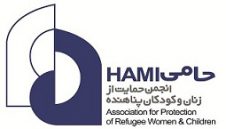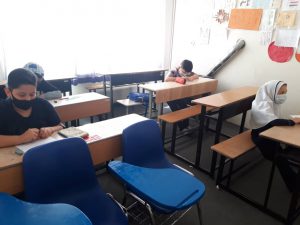Early childhood and primary education form the foundation of the lifelong learning cycle that is at the heart of UNHCR’s Education Strategy. in this level HAMI as a NGO tries to provide all level of learning for our students.
First and foremost, school should be a safe haven. Schools also play an important role in preparing refugee children for the future , and can help connect them with appropriate services.
We believe that basic education should be in international level. for this reason we have started English classes for our learners as a fundamental subject of study in all of our centers since HAMI started its education fields.
Quality education is the anchor that will keep children in the classroom, encouraging them to continue to the end of primary school and transition to secondary and beyond. For that reason, education has a protective effect only if it is of good quality. Knowing that their children are learning is an incentive for parents to send their children to school and make sure they attend regularly. The key to quality lies in sound and inclusive education policies as well as motivated and well-trained teachers. However, teachers are often in short supply where there is an influx of refugees, even in high income countries.
HAMI Refugee Education 2030’s vision: we try to have inequitable quality education in national system that contributes a resilience and prepares children and youth for participation in cohesive societies and is the best policy option for refugees, displaced and stateless children and youth and their hosting communities
.


